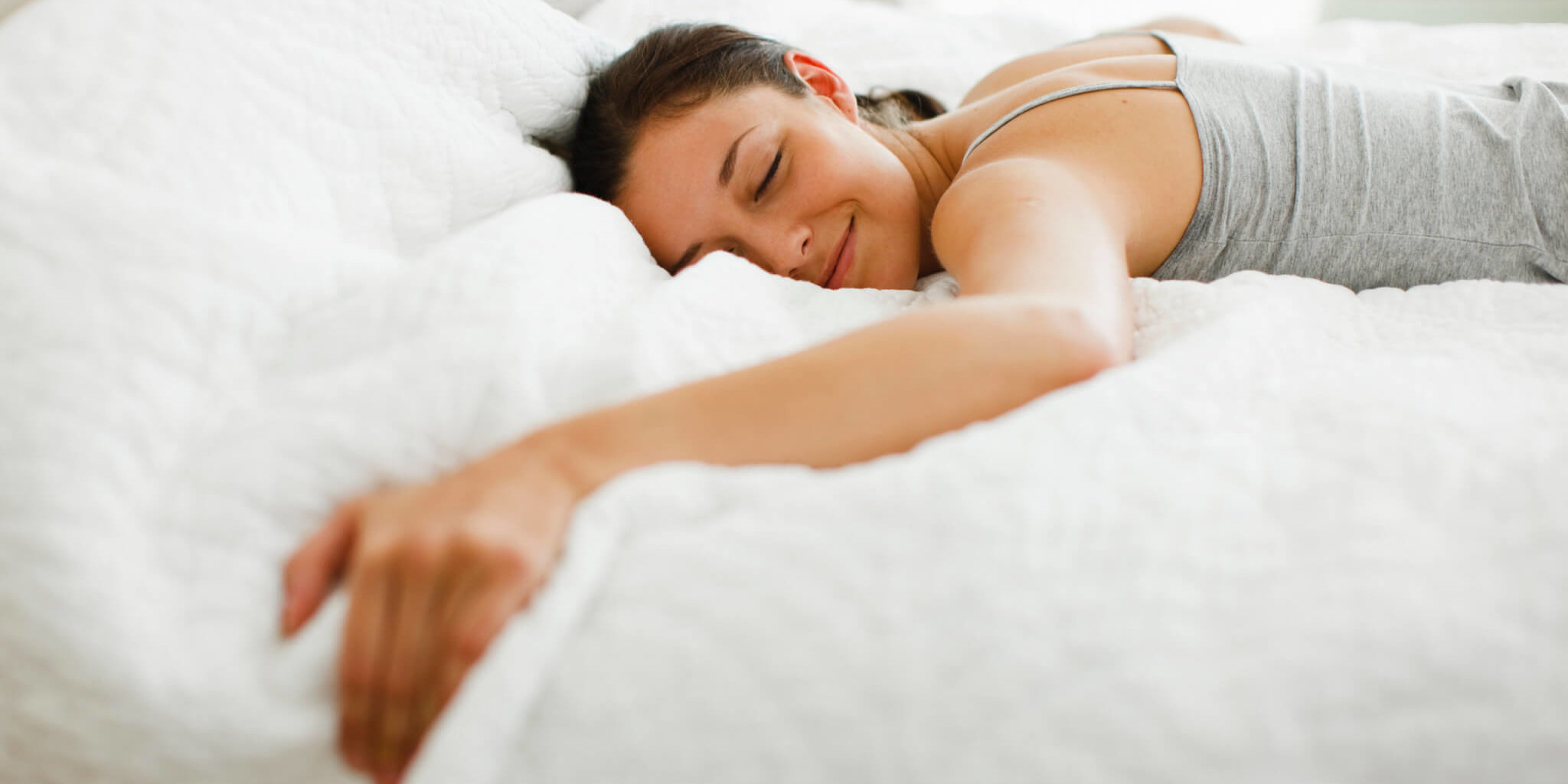Sleep impacts our bodies in so many ways. Poor quality sleep sticks with you all day, changes your energy levels, affects your food cravings, and is linked to many chronic conditions. (1) Since sleep is so important, let’s talk about what impacts your quality of sleep.
When it comes to sleep, research is showing us some interesting results. Have you heard about the brain-gut-microbiome axis? Well, the brain-gut-microbiome axis is the term for the bidirectional communication pathway between our gut and nervous system, including our brain. (2) What is so fascinating about this up and coming research is that we are discovering how the gut seems to impact our mood, brain, and even sleep. (3) As I mentioned before, this communication is bidirectional, meaning that our brain and mood impact our gut too. Though all the research isn’t in yet, the first findings reveal that this connection is made through the vagus nerve. (4) In the gut, this communication seems to travel all the way down to our intestinal microbial community, called the microbiota. The research suggests that our circadian rhythm, the body’s time clock, is linked to our microbiota as these bacteria actually have their own daily rhythm, or “microbial clock.” When our body’s microbial clock and circadian rhythm are in sync, that’s when we thrive. But if our sleep quality or gut health declines, then these rhythms become dyssynchronous. (5) This is exactly what we want to avoid.
While I’d love to talk about research all day, you might not love it as much as I do. So instead, here are the four main actionable steps you can take for your sleep hygiene and gut health and to support the connection between them.
- Boost the number of your healthy gut bacteria: This can be done with cultured or fermented foods as well as supplements. Probiotics are an easy daily action you can take for your gut health.
- Fuel your gut with nutrients: Fiber is your gut’s best friend and essential food for your microbiota. Soluble fiber and insoluble fiber are both important, so get a variety in your diet. Fruits, vegetables, whole grains, legumes, and prebiotics are great sources.
- Set up a consistent sleep schedule: Our bodies thrive when our internal clocks get into a rhythm. Set a bedtime clock and stick to it. Your brain and gut will thank you.
- Add one “de-stressing” activity into your day: De-stressing activities come in all shapes and sizes, like mindful breathing, watching your favorite comedian, getting comfy with a book, or relaxing with a cup of tea. No matter what it is, plan it into each day so that your body and mind can prepare and expect this time to decompress.
Sleep power tip: Do a bedroom sleep environment check—go through your sleeping space and remove all sources of stress or things that keep your mind alert. These could be things like technology that sends work notifications, or maybe TV or media sources with news updates, or clutter around the bed. Whatever it is, remove it from your bedroom so that when it is time for sleep, you get quality sleep.
In summary, quality sleep is essential for a thriving life and a healthy gut seems to be a key step toward that goal. Make sure your brain, gut, and the brain-gut-microbiome axis that connects them are set up for success by getting high-quality sleep and fueling your gut microbiota each day.
 Sarah is the Shaklee Pure Performance Team dietitian/nutritionist. She is also a two-time competitor for the USA in the Summer Games, participating in the 10-meter Air Rifle event in 2012 and 2016. Her experience as an elite athlete and her status as a Registered Dietitian Nutritionist (RDN) and Licensed Nutritionist (LN), make her perfectly suited to consult with Shaklee athletes on their nutritional needs. Sarah graduated from Texas Christian University in Fort Worth, Texas with a BS in Nutrition in 2013, and then earned an MBA in Entrepreneurship and Healthcare Management. She specializes in weight loss, improved sport performance, diabetes prevention, heart health, healthy aging, smoking cessation, and performance goals. Her hobbies include church ministries, mountaineering, physical fitness, and gardening.
Sarah is the Shaklee Pure Performance Team dietitian/nutritionist. She is also a two-time competitor for the USA in the Summer Games, participating in the 10-meter Air Rifle event in 2012 and 2016. Her experience as an elite athlete and her status as a Registered Dietitian Nutritionist (RDN) and Licensed Nutritionist (LN), make her perfectly suited to consult with Shaklee athletes on their nutritional needs. Sarah graduated from Texas Christian University in Fort Worth, Texas with a BS in Nutrition in 2013, and then earned an MBA in Entrepreneurship and Healthcare Management. She specializes in weight loss, improved sport performance, diabetes prevention, heart health, healthy aging, smoking cessation, and performance goals. Her hobbies include church ministries, mountaineering, physical fitness, and gardening.






